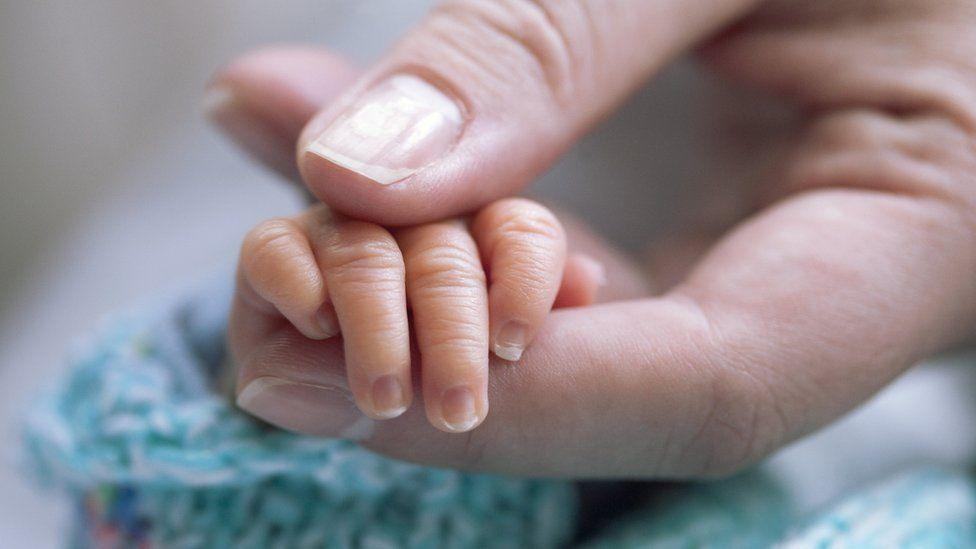Long A&E waits and hospital corridor care in TV doc
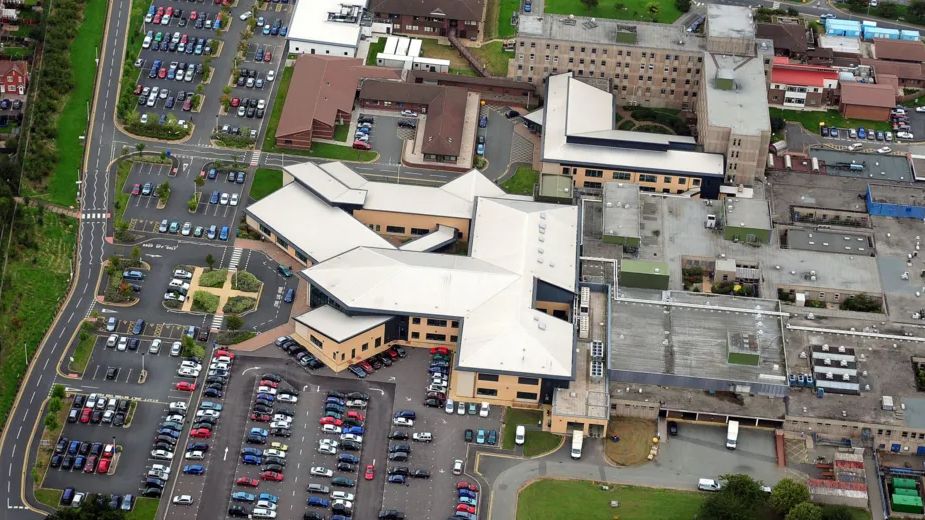
Under a transformation programme, Royal Shrewsbury Hospital will become the trust's centre for emergency medicine
- Published
An undercover investigation at a hospital has claimed a reporter witnessed patients waiting in A&E for up to 46 hours and undignified treatment of patients in corridors.
The BBC understands that a Channel 4 Dispatches reporter worked as a trainee healthcare assistant and secretly filmed the emergency department at the Royal Shrewsbury Hospital in April and May.
Their footage, not seen by the BBC, shows the suffering and indignity faced by patients on a daily basis, programme makers said.
In response to the allegations, a trust spokesperson apologised and said they faced significant challenges in urgent care, but also disputed some claims made in the programme due to air on Channel 4 on Monday.
Dispatches said its footage showed patients waiting overnight in a "Fit to sit" area due to a lack of trolleys - with one person in the area for 30 hours.
A woman with a suspected stroke waited in the same area for 24 hours, programme makers said, although the Shrewsbury and Telford Hospital NHS Trust (SaTH) spokesperson said they did "not recognise the comment" about stroke patients waiting and needed more information to investigate in detail.
An elderly man was seen having to urinate in a bottle while on a trolley in a corridor in full view of staff and other patients and the trainee also saw a female patient crying out in agony for hours, Dispatches said.
The filming allegedly showed patients waiting up to four-and-a-half hours in ambulances with some crews who could not wait any longer leaving them in a receiving area without a proper handover.
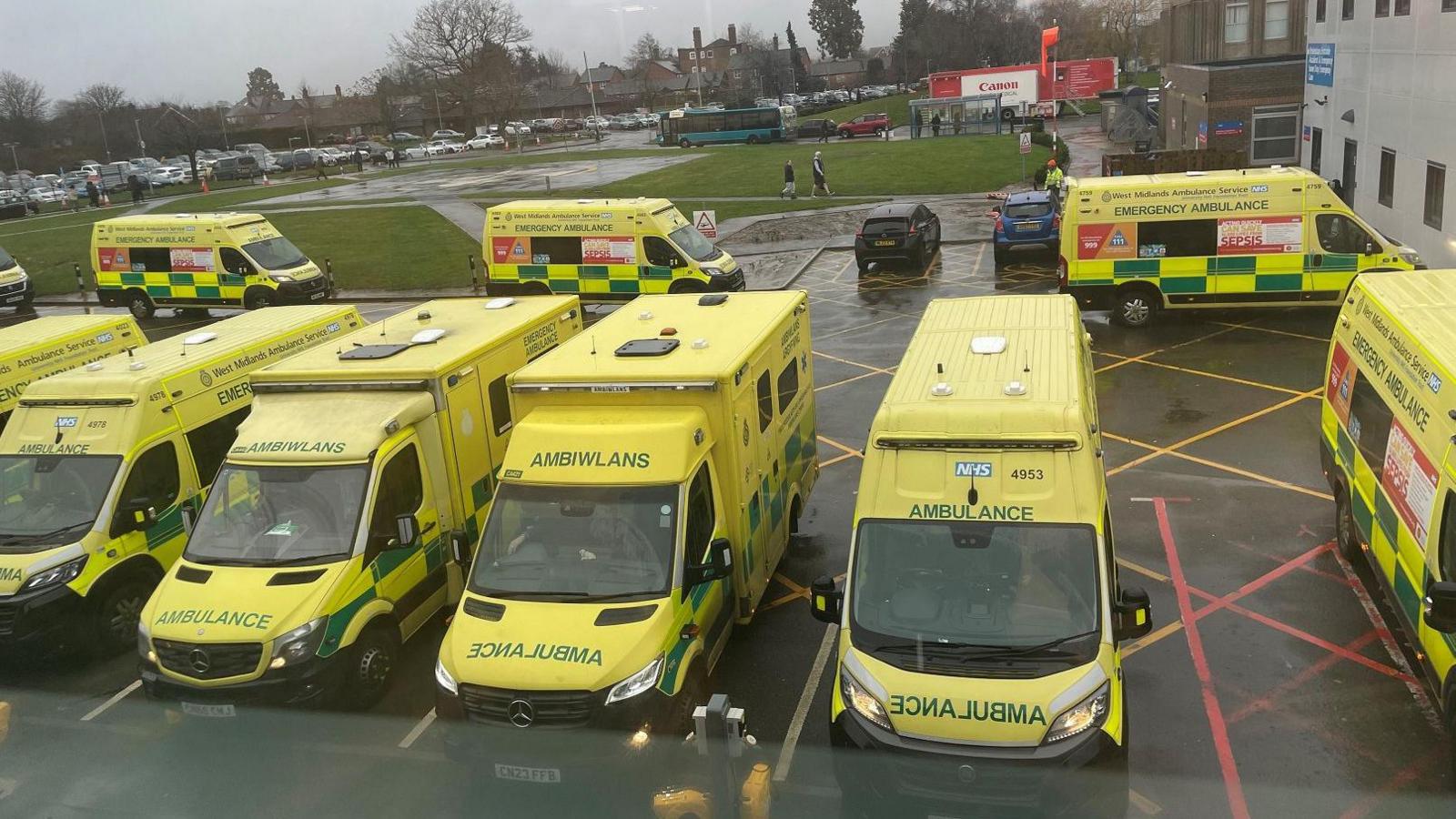
Filming by Dispatches allegedly showed ambulance crews having to leave patients in a receiving area because they could not wait any longer
Staff were shown on video talking about the level of care being offered, with one nurse commenting “that’s disgusting care", while referring to a patient waiting 29 hours, Dispatches said.
Another nurse, referring to how paramedics left patients without a handover, said: "It’s really unsafe."
The trust said it did "not recognise the comments that the use of [the] ambulance receiving area is unsafe although we recognise that due to the demand for inpatient beds in the hospital our patients are waiting longer than we would want in this area".
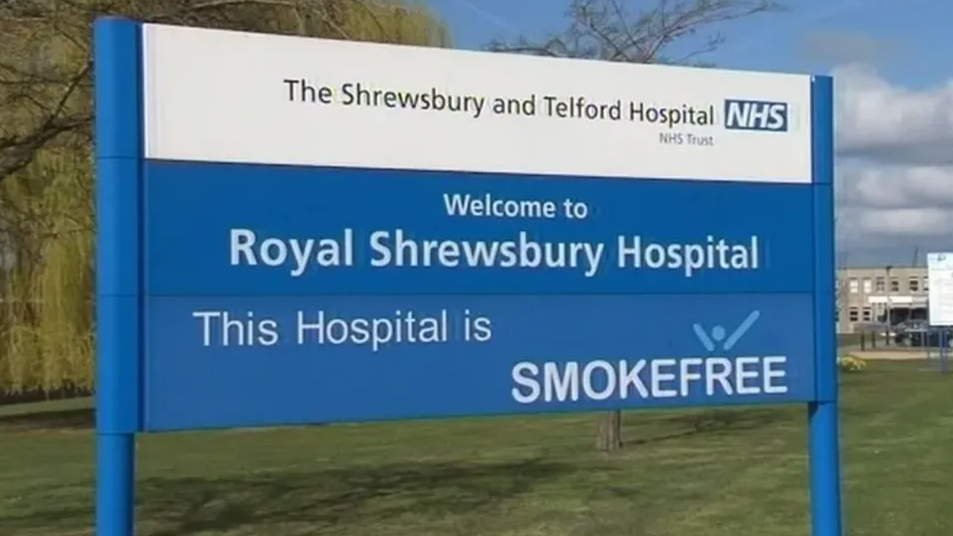
The trust said while it disputed some claims in the film, it would thoroughly investigate all the points raised
The BBC has learnt there were 130 unexpected deaths in Shropshire's A&E departments last year.
In response, the trust said it had carried out a review to understand and address the recorded increase in deaths in its emergency departments, but it "did not identify any overall failures or omissions in medical or nursing care impacting on patient outcomes".
In addition it said it had "strengthened nursing leadership" and taken other measures to "support quality, dignity and care for patients in these difficult circumstances".
Speaking about the footage taken in the emergency department, Dr Adrian Boyle, President of the Royal College of Emergency Medicine, told Dispatches: "I don’t think this is unique to this hospital by any stretch of the imagination.
"The things we've seen here today are clearly not just confined to winter. It was a year-round crisis in emergency care."
Prof Alf Collins, trustee of the Patients Association and former NHS England clinical director for personalised care, added: "It's dreadful. People waiting just far, far too long."
Talking about the elderly patient urinating in a corridor, he said the "very most basic standard of care that we should be delivering is not being delivered".
"It's clearly unacceptable that people should be cared for in corridors, clearly unacceptable," he added.
'Not acceptable'
In its statement, the trust, who said it had not seen the programme, added: "We understand our challenges and are investing in our services and making steady improvements as a trust, as noted in our recent Care Quality Commission report.
"However, there is still much more to do, we do not want to be in a position where we are caring for patients on corridors.
"We are very sorry that our patients have experienced anything less than the quality care we strive for and we are determined, working with partners, to improve the care and experience for everyone."
Staff worked "incredibly hard" to maintain services and the trust said it was grateful for everything they do for patients.
"Whilst we dispute some of the claims made in the Dispatches programme, we will fully investigate all of the claims to identify and embed any learning into our continuous improvement work," they added.
Prof Julian Redhead, NHS England's national clinical director for urgent and emergency care, said what was seen at the Shropshire NHS trust in recent weeks was "not commonplace in A&Es across the country" and was "not acceptable".
"We are continuing to offer the trust the highest level of national support to improve care for patients," he added.
"While the health service is facing significant demand for services, with more people attending A&Es in England in May than any other month on record and attendances and emergency admissions up almost 20% on a decade ago, the NHS has a detailed plan to overhaul urgent care services, including offering greater use of same day emergency care and urgent community response teams and by delivering an extra 5,000 core beds in hospitals."
Undercover A&E: NHS in Crisis – Dispatches will be shown on 24 June at 21:00 BST on Channel 4.
Follow BBC West Midlands on Facebook, external, X, external and Instagram, external. Send your story ideas to: newsonline.westmidlands@bbc.co.uk, external
Related topics
- Published25 May 2024
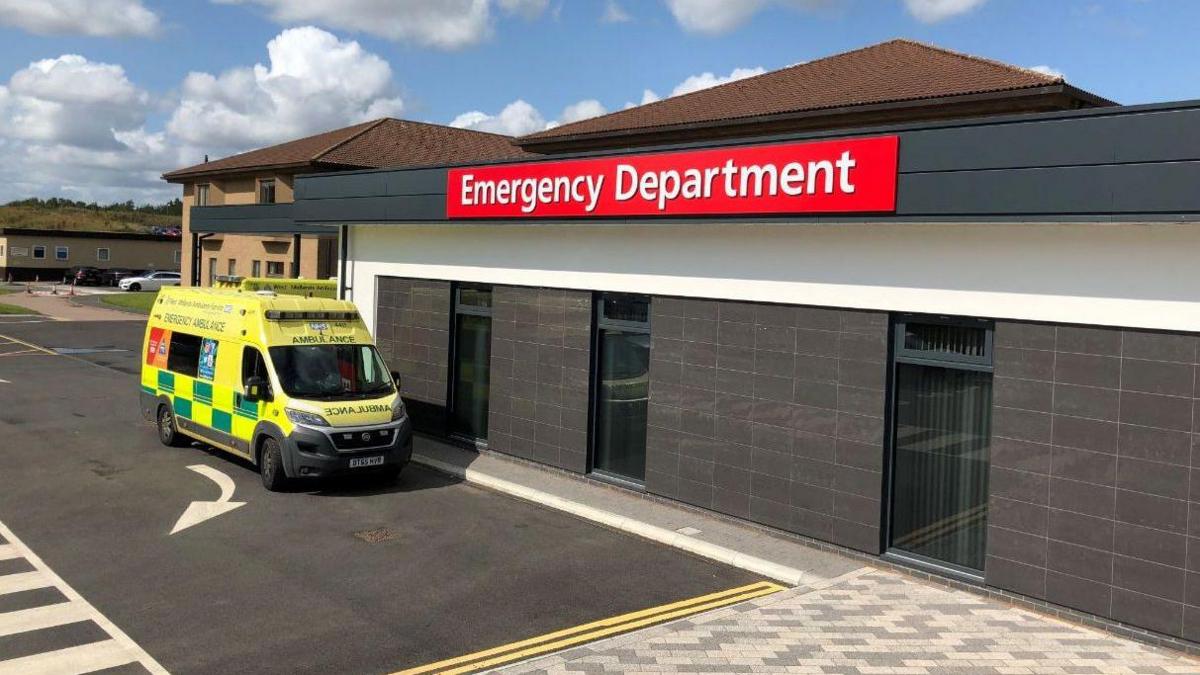
- Published30 January 2024
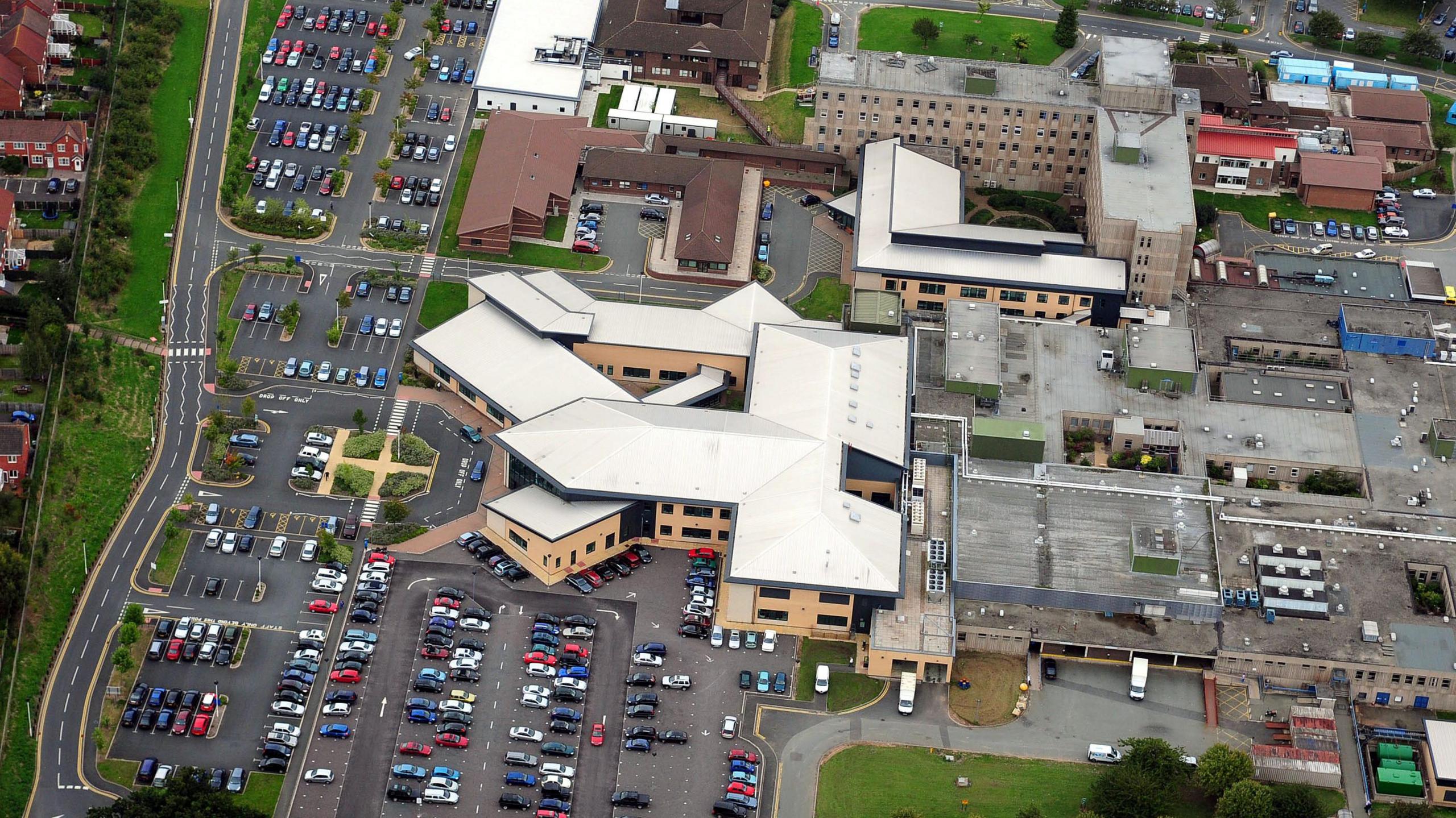
- Published15 May 2024
